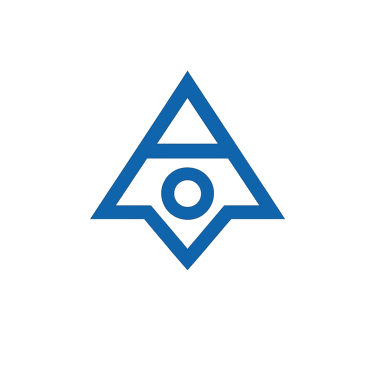Frequently Asked Questions (FAQs)
1. Savings Account FAQs
Q1. What is the minimum balance required to open a Savings Account?
A minimum balance of ₹1,000 is required to open a Savings Account.
Q2. Who can open a Savings Account?
Any resident individual, singly or jointly, including minors (through guardians), can open a savings account.
Q3. What documents are required to open a Savings Account?
Identity proof (Aadhaar, PAN, Passport, Voter ID)
Address proof (Utility bill, Aadhaar, Rent agreement)
Passport-size photograph
For minors: Birth certificate and guardian’s KYC
Q4. What is the interest rate offered on Savings Accounts?
The interest is calculated on daily balance and credited quarterly (as per RBI guidelines). Rates may change from time to time.
Q5. Can I get a passbook and cheque book?
Yes, all savings account holders are issued a passbook and cheque book (subject to eligibility).
Q6. Can a Savings Account be jointly operated?
Yes. Accounts can be jointly operated with “Either or Survivor” or “Jointly” options.
Q7. Is nomination facility available?
Yes, all deposit accounts have nomination facility.
2. Current Account FAQs
Q1. What is the minimum balance for a Current Account?
A minimum balance of ₹5,000 is required.
Q2. Who can open a Current Account?
Businesses, companies, proprietorships, partnerships, professionals, and institutions.
Q3. What documents are required?
Identity & address proof of proprietor/partners/directors
Business registration/license/GST certificate
PAN & Aadhaar
Passport-size photographs
Q4. Is there any restriction on number of transactions?
No, unlimited deposits and withdrawals are allowed.
Q5. Is interest paid on Current Accounts?
No, current accounts do not earn interest.
Q6. Can overdraft facility be availed?
Yes, overdraft may be sanctioned against security or fixed deposit.
3. Fixed Deposit (FD) FAQs
Q1. What is the minimum deposit for FD?
₹1,000.
Q2. What is the maximum tenure?
7 days to 10 years.
Q3. What interest rates are offered?
Rates vary based on tenure. Senior citizens enjoy additional interest.
Q4. How is interest paid?
Options: Monthly, quarterly, annually, or on maturity.
Q5. Can I take a loan against FD?
Yes, up to 85–90% of FD value.
Q6. Is premature withdrawal allowed?
Yes, subject to applicable penalty.
Q7. Can FD be auto-renewed?
Yes, auto-renewal facility is available.
4. Recurring Deposit (RD) FAQs
Q1. What is the minimum monthly installment?
₹100 and in multiples thereof.
Q2. What is the tenure range?
1 year to 10 years.
Q3. Is interest rate same as FD?
Yes, RD earns the same rate as FD for corresponding tenure.
Q4. Can I take a loan against RD?
Yes, loan/overdraft facility available.
Q5. Can RD be closed before maturity?
Yes, premature closure is permitted with penalty.
5. Senior Citizen Deposit FAQs
Q1. Who qualifies as a Senior Citizen?
Any individual aged 60 years or above.
Q2. What is the special benefit?
An additional interest rate (generally +0.50% over regular FD rates).
Q3. What tenure is available?
6 months to 10 years.
Q4. Can monthly/quarterly interest be paid out?
Yes, regular payout options are available.
Q5. Can a Senior Citizen Deposit be jointly held?
Yes, but the primary account holder must be a senior citizen.
6. Loans & Advances FAQs
Q1. What types of loans are offered?
Personal Loan
Home Loan
Vehicle Loan
Business Loan
Education Loan
Gold Loan
Agriculture Loan
Loan Against Deposit
Working Capital / Cash Credit Facility
Q2. What is the maximum tenure?
Personal Loan: 5 years
Home Loan: 20 years
Vehicle Loan: 7 years
Business Loan: 10 years
Education Loan: 10 years (incl. moratorium)
Gold Loan: 3 years
Agriculture Loan: 1–5 years (crop cycle)
Q3. What are the interest rates?
Rates vary by product: 7% (Agri loans) to 13% (Personal/Business loans).
Q4. Can loans be prepaid?
Yes, with/without penalty depending on scheme.
Q5. Is collateral required?
Home Loans: Property papers
Gold Loan: Gold pledged
LAD: FD/RD lien
Personal Loan: Often unsecured (may require guarantor)
7. Locker Facility FAQs
Q1. Who can avail locker facility?
Any individual or joint account holder with the bank.
Q2. What documents are required?
Locker agreement form
KYC documents
Nomination form
Q3. What sizes of lockers are available?
Small, Medium, Large (availability subject to branch).
Q4. What is the annual rent?
Depends on locker size and location (branch-specific).
Q5. Can lockers be operated jointly?
Yes, with "Either or Survivor" or “Jointly” mandates.
8. Fund Transfer Services FAQs (NEFT, RTGS, IMPS)
NEFT (National Electronic Funds Transfer)
Q1. What is NEFT?
A nationwide payment system for transferring funds electronically.
Q2. What is the timing?
Available 24x7 (except for technical downtime).
Q3. Is there a limit?
No minimum; maximum depends on RBI/bank rules.
Q4. Charges?
Nominal service charge (as per RBI/bank guidelines).
RTGS (Real-Time Gross Settlement)
Q1. What is RTGS?
Funds transferred in real time and on a gross basis.
Q2. What is the minimum amount?
₹2,00,000.
Q3. Is there a maximum limit?
No maximum limit.
Q4. Timing?
Available 24x7.
IMPS (Immediate Payment Service)
Q1. What is IMPS?
Instant interbank transfer through mobile/net banking/ATM.
Q2. What is the limit?
Usually up to ₹2,00,000 per transaction (varies by bank).
Q3. Availability?
Available 24x7, 365 days.
Q4. Do I need IFSC code for IMPS?
You can transfer via IFSC + Account No. or MMID + Mobile No.
9. General Banking FAQs
Q1. What is Nomination Facility?
Nomination allows an account holder to nominate a person who can claim the balance in case of the depositor’s death.
Q2. Can accounts be operated jointly?
Yes, savings, current, and term deposits can be opened jointly.
Q3. How can I update my KYC?
By submitting updated ID/address proofs at the branch.
Q4. Does the bank provide digital banking?
Yes, fund transfers (NEFT/RTGS/IMPS), SMS alerts, and ATM/debit services are available.
Kota Nagarik Sahakari Bank Limited
Contact Us
📍 Rama Krishna Puram, Kota, Rajasthan
📞 Phone: +91 8222079831 Email: contacts@ktnsb.com
Copyright © 2025 Kota Nagarik Sahakari Bank Limited. All Rights Reserved.
